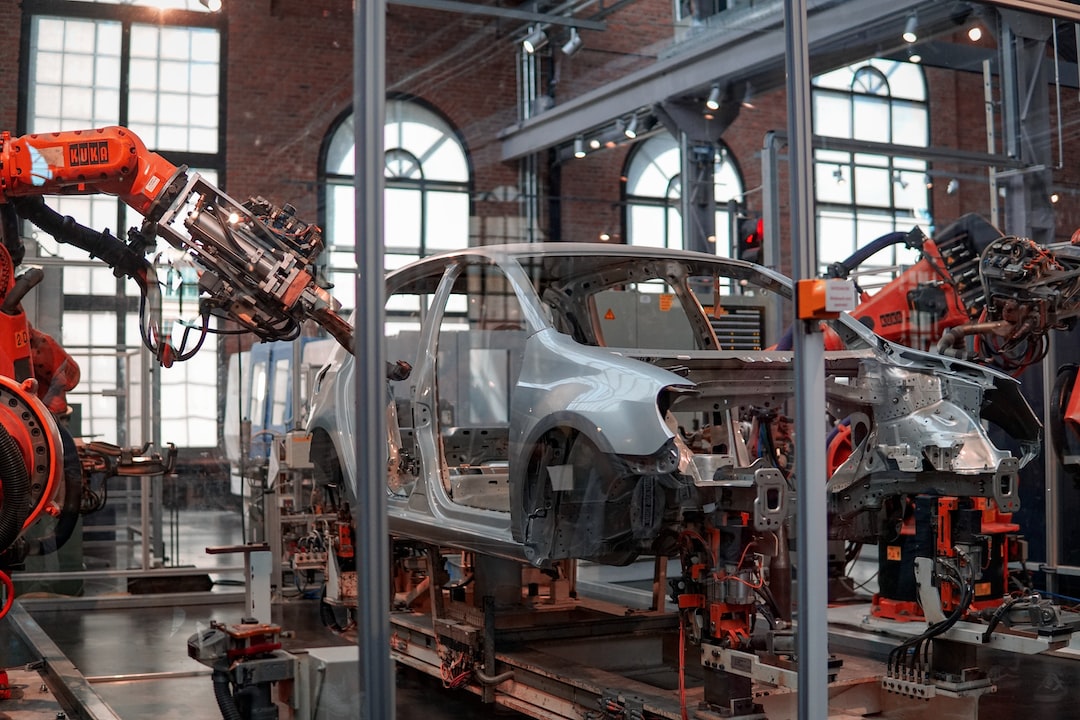The Role of IoT in Revolutionizing Manufacturing Processes
The Internet of Things (IoT) has become an integral part of our daily lives, connecting various devices and making our lives easier. While its impact on sectors like healthcare and transportation is well-known, the manufacturing industry has also witnessed a significant transformation thanks to IoT technologies. In this blog post, we will explore the role of IoT in revolutionizing manufacturing processes and how it is shaping the future of the industry.
To understand the impact of IoT on manufacturing, we must first delve into the concept of IoT itself. IoT refers to the network of physical devices embedded with sensors, software, and connectivity capabilities, allowing them to collect and exchange data. These devices can range from machinery on the factory floor to products being manufactured. By connecting these devices and utilizing the data they generate, manufacturers can gain valuable insights and optimize their processes.
One of the key areas where IoT has revolutionized manufacturing is predictive maintenance. Traditionally, manufacturers would perform maintenance on machinery based on a predefined schedule. However, this approach often leads to unnecessary downtime and maintenance costs, as machines may not require immediate attention. With IoT, manufacturers can monitor the condition of machinery in real-time, utilizing sensor data to predict when maintenance is required. This can not only prevent breakdowns and expensive repairs but also optimize the overall efficiency of the manufacturing process.
IoT also plays a crucial role in improving the quality control of products. By embedding sensors into products or production line equipment, manufacturers can continuously monitor various parameters like temperature, humidity, pressure, and more. This allows them to identify and rectify any deviations from the desired specifications, ensuring a higher level of product quality. Moreover, data collected from IoT devices can be analyzed to identify patterns and insights that can further enhance the production process and minimize defects.
Efficiency is another area where IoT has revolutionized manufacturing processes. By connecting machinery and systems, manufacturers can gather real-time data on energy consumption, production output, and other critical parameters. This data can then be used to identify inefficiencies, optimize energy consumption, and streamline processes. For example, if a particular machine is consuming excess energy, IoT data can help identify the root cause and implement corrective measures to reduce energy consumption.
Beyond individual machines, IoT enables the integration of entire supply chains, fostering collaboration and transparency. By connecting suppliers, manufacturers, and customers through IoT devices, real-time data sharing and visibility are achieved. For instance, if the demand for a product suddenly increases, manufacturers can promptly notify their suppliers and adjust the production accordingly. This leads to a more agile and responsive supply chain, minimizing delays and improving customer satisfaction.
Safety is another critical aspect of manufacturing that IoT helps address. By incorporating sensors and IoT devices into machinery, manufacturers can monitor workforce safety and ensure compliance with safety regulations. For example, sensors can detect dangerous levels of chemicals or gases, alerting workers and triggering safety protocols. Additionally, wearables equipped with IoT technology can track the movement and health of workers, preventing accidents and providing necessary support in case of emergencies.
In conclusion, IoT has revolutionized manufacturing processes by enabling predictive maintenance, improving product quality control, enhancing efficiency, fostering supply chain integration, and enhancing safety. The ability to gather real-time data, analyze it, and make informed decisions based on insights delivered by IoT devices has become a game-changer for the industry. As manufacturers continue to adopt and embrace IoT technologies, we can expect even more exciting advancements in the manufacturing sector in the years to come. The possibilities are endless, and IoT is undeniably shaping the future of manufacturing.

